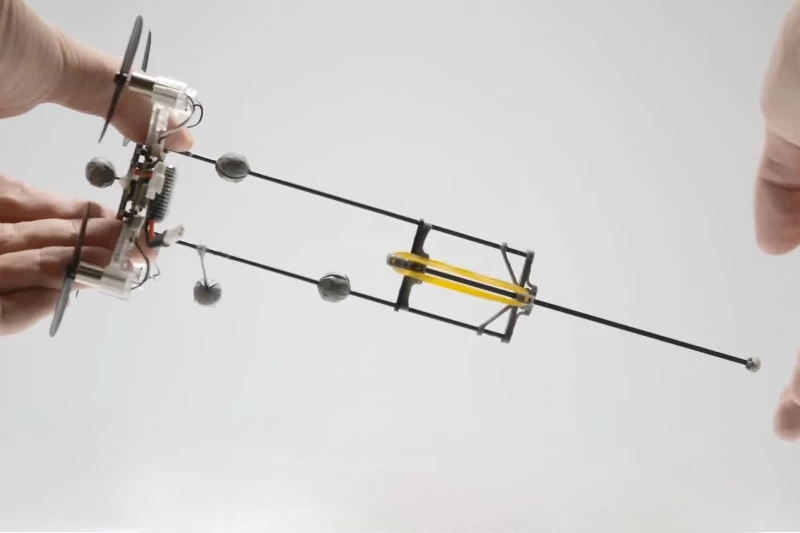By hopping like a person on a pogo stick, a modified aerial drone can operate for almost an hour as opposed to several minutes if it simply flew. Descendants of the aircraft could one day find use in applications such as wildlife monitoring, crop inspection or search and rescue.
Appropriately named the Hopcopter, the device was created by a team of scientists from City University of Hong Kong and The Hong Kong University of Science and Technology. It takes the form of a small commercially available Crazyflie quadcopter with an elastomer-band-loaded rubber-tipped leg mounted in a frame on its underside.
When hopping isn't an option, the Hopcopter can still fly like a regular multirotor drone. In order to save battery power, though, it can also accelerate downward – spring-loading the leg upon impact with the ground – then rapidly rebound both vertically and horizontally. During the rebound phase, little if any motor use is required.
By adjusting the angle at which its leg meets the ground, the drone can control the direction in which it rebounds.
And what's more, the leg isn't limited to use on horizontally level surfaces. If the drone needs to make a sudden high-speed turn, for instance, it can simply fly leg-first into a sloping or vertical surface (such as a wall), rapidly deflecting itself in the desired direction. Making such fast, sharp turns in regular flight mode would be impossible.
In indoor tests, the Hopcopter managed an average hopping speed of 2.38 meters (7.8 ft) per second at an average jump height of 1.63 m (5.34 ft). And more importantly, it was able to keep running for 50 minutes per battery-charge – in regular flight mode, it could go for only six minutes.
A paper on the research, which was led by City University of Hong Kong's Dr. Songnan Bai, was recently published in the journal Science Robotics. The Hopcopter can be seen in action, in the video below.
Source: Tech Xplore




